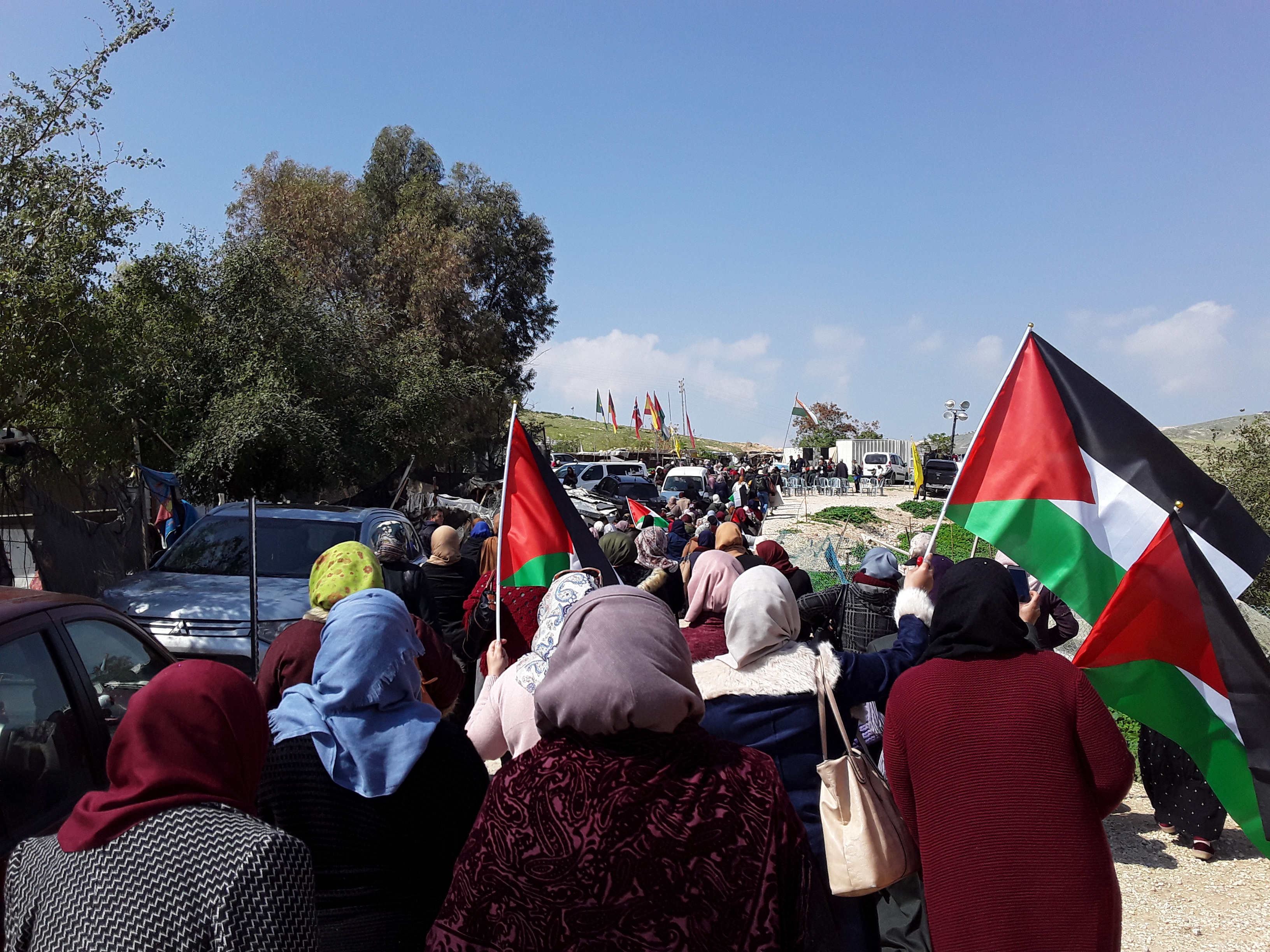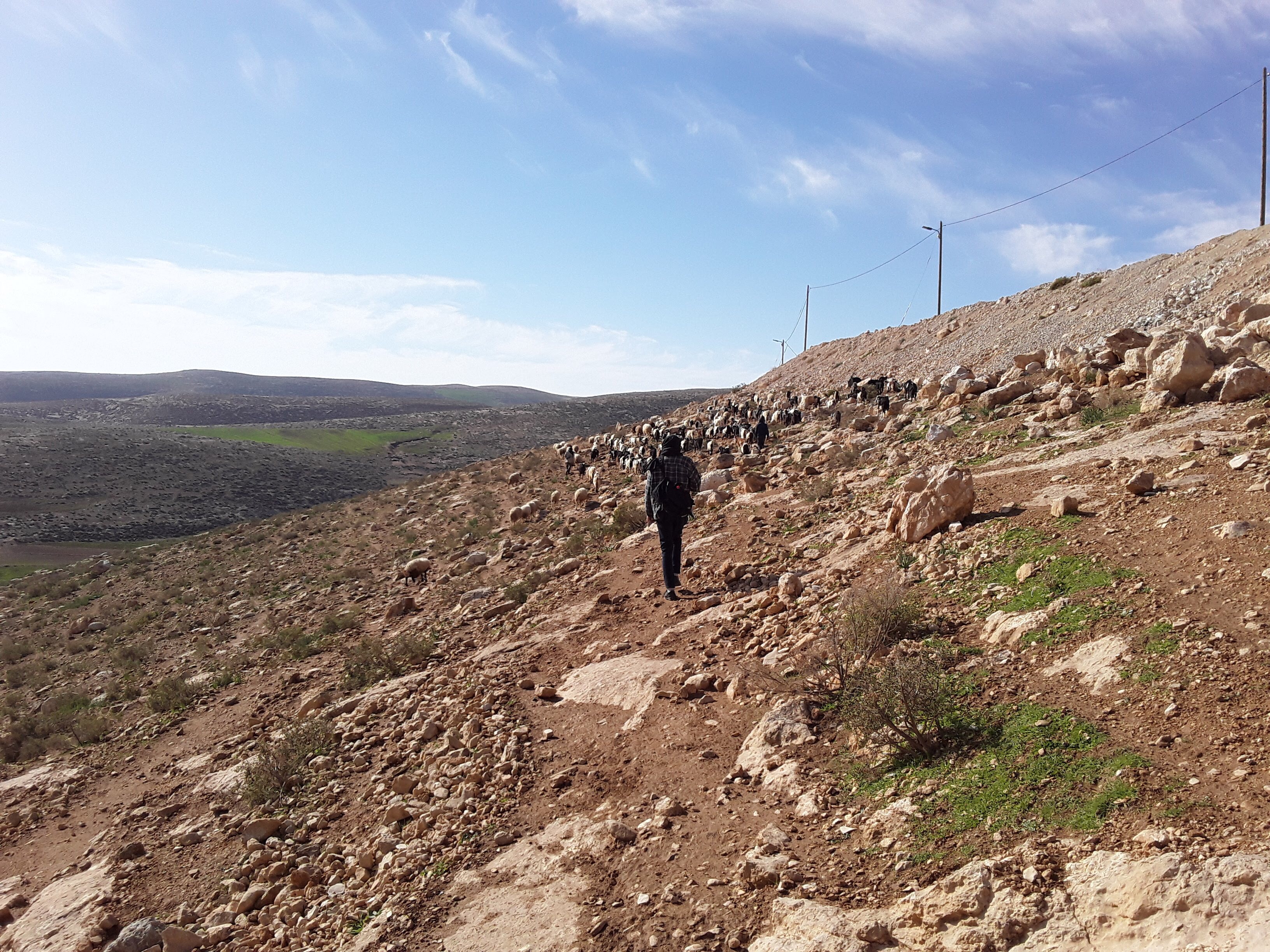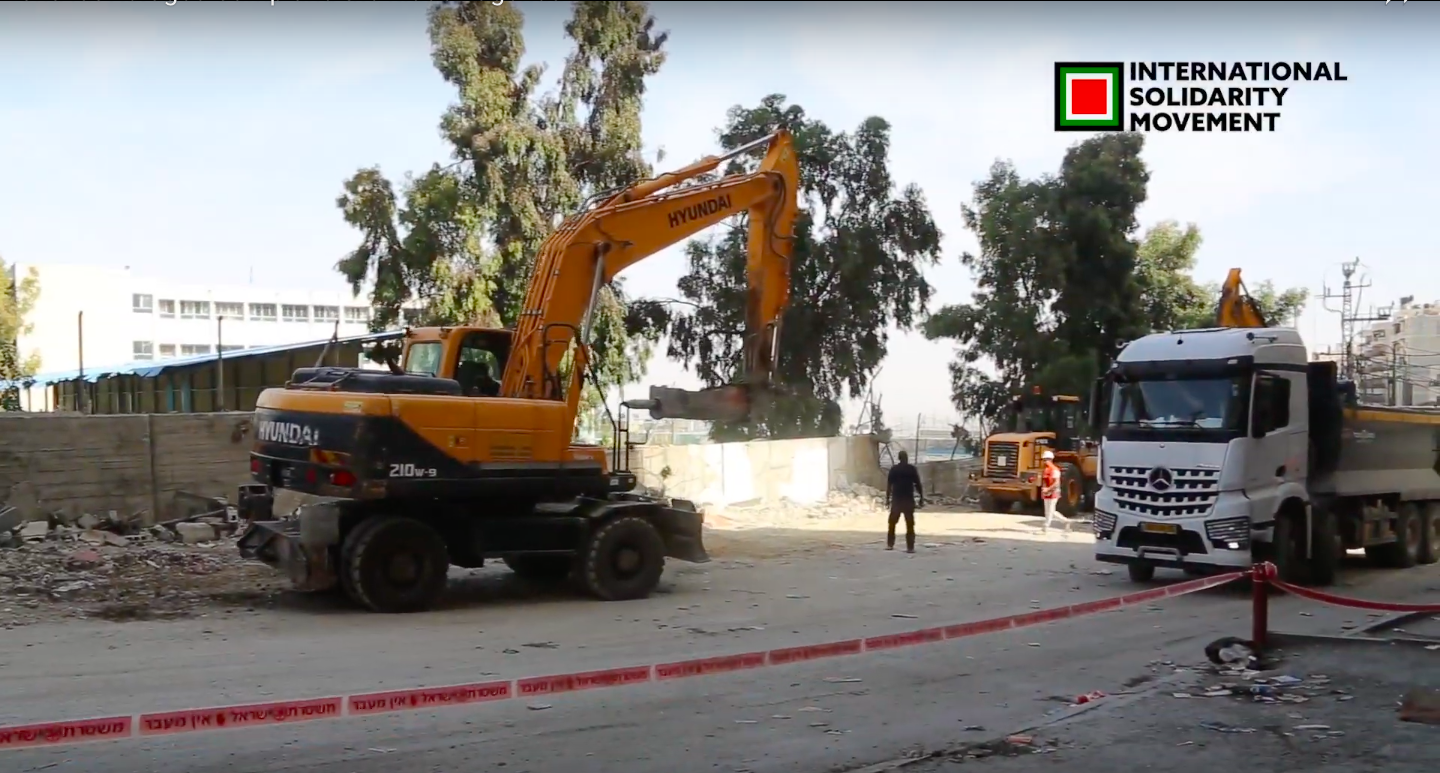Tag: House Demolition
-
Women from across Palestine gather in Khan al-Ahmar, call for resistance
March 6, 2019 | International Solidarity Movement, Al-Khalil team | Hebron, occupied Palestine Hundreds of women from all over Palestine met in Khan al-Ahmar on Wednesday March 6. The meeting was a response to a call for solidarity made by the General Union of Palestinian women and the residents of Khan al-Ahmar, as…
-
Resistance in the South Hebron Hills
In early January, ISM activists visited the villages of Um al-Khair and At-Tuwani in the South Hebron hills in order to participate in renovation work on ancient caves and to bear witness to recent settler violence in both villages. The villages are located in Area C of the occupied West Bank, occupied Palestine, an area…
-
Shu’fat Refugee Camp and the hidden agenda
Recently, over 20 demolitions were carried out in the Shu’fat Refugee Camp by the Israeli Occupation Forces to make way for a wider road and inevitable future relocation of the residents of Jerusalem’s only refugee camp.



